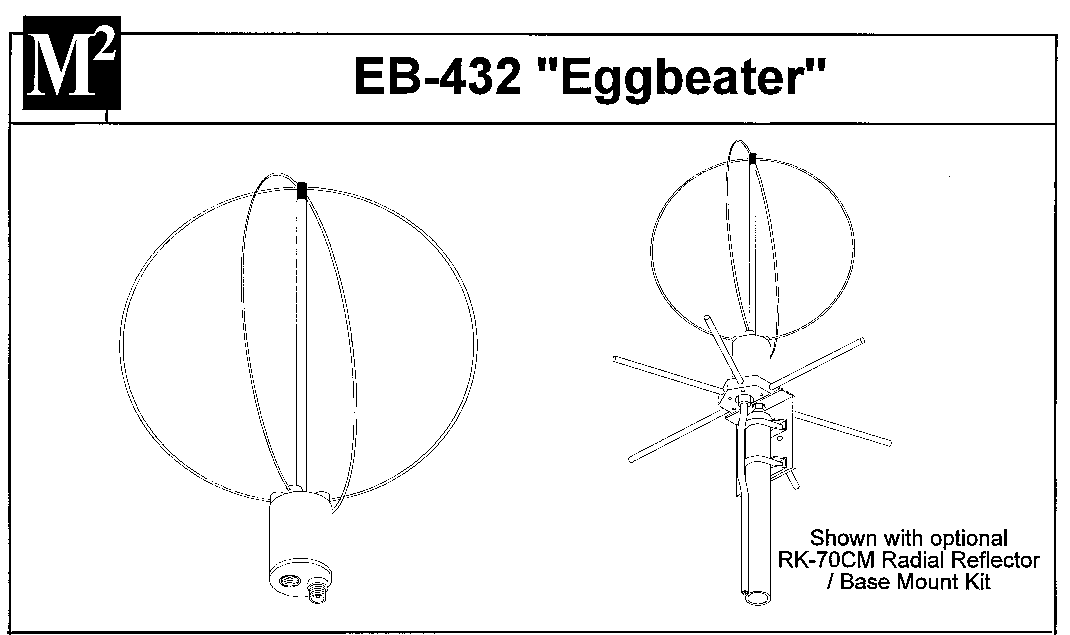
#Eggbeater antenna pdf how to
Nevertheless, how to improve the eggbeater as an omni-directional antenna? A couple of data points worth noting are, compared to directly overhead, a typical LEO satellite has about 6 db in free-space path loss at 30 degrees, and another 6 db at the horizon. It has been my workhorse LEO antenna ever since, but of course, it is a directional antenna. The TPM improved the coaxial gain of the eggbeater by re-shaping the loop into a square and moving the reflector closer to the driven element. My on-the-air observations about the excellent overhead performance of the eggbeater with radials led to some hunches, followed by experimentation, and resulted in the Texas Potato Mashers (Jan/Feb 1999 The AMSAT Journal). As the pattern rises in elevation, it becomes more and more RHCP. To the horizon it is linear-horizontally polarized. This effect makes it a "gain" antenna, but that gain is at the expense of low-elevation reception. It also uses, optionally, a pair of parasitic reflector elements to focus more of the radiation pattern overhead. The garden-variety home-brew version employs a 90-degree "phasing" line to provide a fixed right-hand circular polarization (RHCP). Commercial versions are available from M2 Antennas.
#Eggbeater antenna pdf full
It is, basically, just two full wave loops fed in quadrature.

Background: The "eggbeater" antenna is an omni-directional antenna employing circular polarization to maximize signal capture from low Earth orbit (LEO) satellites. This design is the outcome of my investigations into methods of improving the performance of the "original" eggbeater without obviating the simple construction. I have built several of the traditional "eggbeaters" from plans floating around on the Internet, but was never satisfied with the overall performance. 1 of 5 Eggbeater II Omni LEO Antennas Presented here is a high-performance, circularly polarized omni-directional antenna that is easy to build, easy to tune, inexpensive, and will work all the mode J Low Earth Orbit (LEO) satellites.


 0 kommentar(er)
0 kommentar(er)
